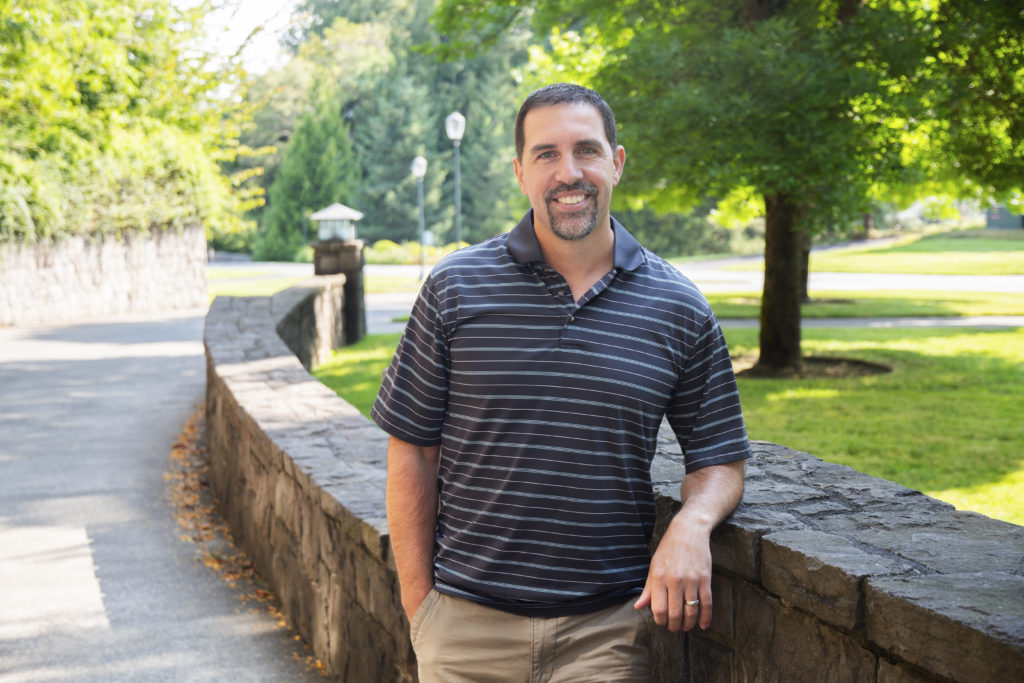Each year WSU Vancouver students recognize and vote on a faculty member whose love for teaching and students shows no bounds. This award, the Students’ Award for Teaching Excellence, is presented on stage at the spring commencement ceremony.
Dale Fortin, a neuroscience research assistant professor took home the 2018 award last spring.
“It is one thing to be awarded by your peers, it’s another thing to be awarded by students,” Fortin said. “As an educator there is no greater reward than one coming from your students. A very humbling and tremendous experience.”
WSU Vancouver alumna Angela Gonzalez said on behalf of her former professor, Fortin, that not only was he flexible, but his main objective was for students to retain core class concepts.
“It was rare for me to not understand a topic Dr. Fortin discussed in class because he made difficult concepts more engaging and encouraged his students to work together in discussions,” said Gonzalez.
Fortin said that when teaching his neuroanatomy and neurophysiology courses, his passion for teaching is just as important as questions and discussions. He also said he focuses on teaching students how to really learn the material and to be confident in their answers.
Jereme Wingert, a WSU Vancouver neuroscience student, had high praises for Fortin’s abilities as an instructor.
“Perhaps of all the professors I have had, the one thing that has stood out to me about Dale is his very earnest and sincere enthusiasm about what he is teaching,” Wingert said. “It was infectious and as a student it made learning very exciting and interesting.”
Fortin’s personal teaching philosophy includes not punishing students that struggle to learn the material but instead teaching them how to learn the material and not only what it contains.
Fortin said he uses mistakes and errors from his own experiences when teaching because he believes these errors can lead to learning opportunities.
He also uses teaching techniques he learned from his time as a youth sports coach. He said his goal is to teach students a skill without them knowing. To do this, Fortin implements different games and teaching styles into his lectures. An example he provided of these games is a neuro-protein based version of a fantasy football draft.
When studying for his masters degree in exercise physiology Fortin said his mentor, Sam Headly, was his biggest teaching inspiration. “He [Headly] was all about instilling confidence in his students.”
Outside of teaching at WSU Vancouver, Fortin is a research associate at Oregon Health and Science University Vollum Institute. With his first-hand experience in the field, Fortin’s students had the opportunity to tour the labs and learn more about the career of a researcher.
“I am a big proponent of engaging students in the learning process and having them take ownership in the work they do,” Fortin said. “And providing these opportunities is one way I can demonstrate it.”
